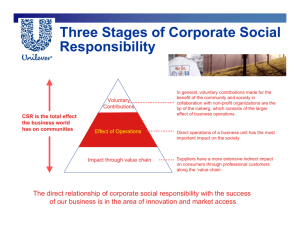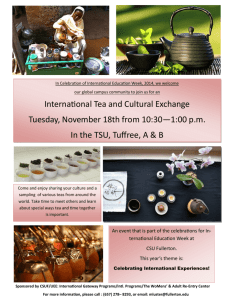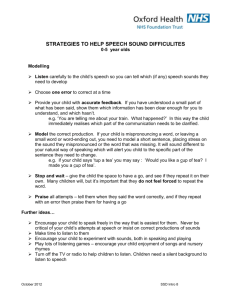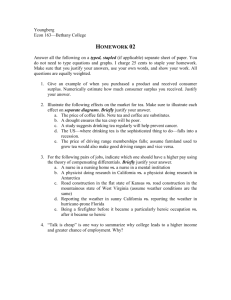Chè Việt Cơ hội và thách thức - Food and Agriculture Organization
advertisement
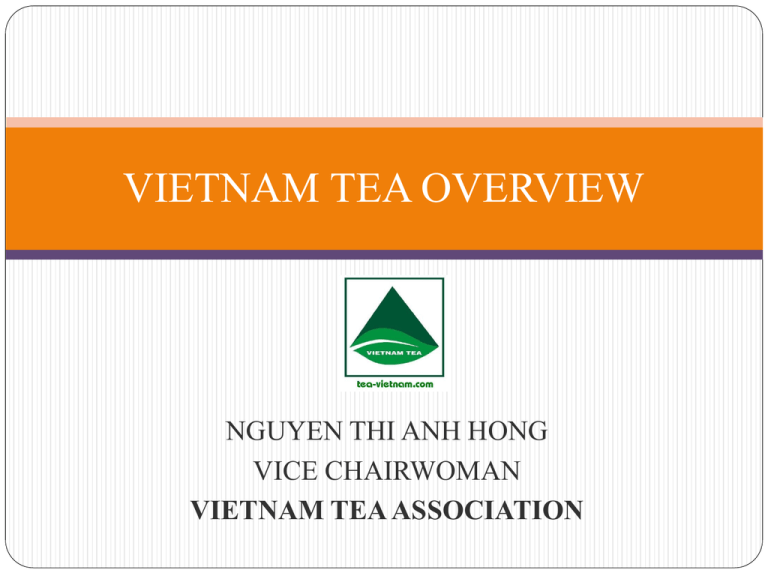
VIETNAM TEA OVERVIEW NGUYEN THI ANH HONG VICE CHAIRWOMAN VIETNAM TEA ASSOCIATION A. VIETNAM TEA OVERVIEW 1. Production (Thousand ton) 200 200 Axis Title 195 190 185 185 160 180 175 170 2012 2013 2014(EST) 2. Domestic consumption (Thousand ton) 3. Export volume (Thousand ton) 4. Export turnover (Million USD) 5. Export products ratio (%) 6. Tea growing areas (Est.) (ha) 27.500 89.000 75.000 Northen midland and mountain Northen central land Central high land 7. Total tea growing area (ha) 131.000 130.000 129.000 128.000 127.000 126.000 125.000 124.000 123.000 122.000 121.000 120.000 130.098 128.000 125.000 124.000 124.000 2012 2013 Year 2009 2010 2011 According to “the restructure master plan for agriculture ”, total tea growing area until 2020 is 150.000 ha 8. Top 10 export market in 2013 Pakistan Taiwan China Russia Indonesia Afganistan USA Iran Poland The United Arab Emirates 9. Agricultural production Old areas reduce faster than the development of new tea area - reduction in tea land significant. Production of tea leave materials decreased by 25% in 2014 due to bad weather, less re-invested in tea cultivation and machine harvesting. Tea farmers increase spontaneous tea growing acreage but there is no exact statistic. Control of plant protection chemicals The new varieties have not been grown. Sustainable program/ PPP task force from Government. 10. Processing, Trading, Exporting Processing capacity continues to exceed the ability supplying of fresh tea leaf. The number of small and mini processing facilities continue to increase (over 350 mini facilities/455 facilities with the basis of capacity of 1 ton/day) The examination of food hygiene, safety standards and regulations for medium and large factories are regularly conducted. The shortage of skilled workers – turn to other industries There are more exporters, export markets up to 61 A slight swap shows the trend of the products, green tea increases faster with better price. B. VIETNAM TEA OUTLOOK 1. 2. 3. 4. 5. Reorganize Vietnam tea industry by establishing a State Management Agency, tentatively called “Coordinating Committee" to consistently and effectively manage the tea production industry. Conduct planning of tea growing regions in order to improve productivity, quality and safety of fresh tea material. Set up new “ A team” to control pesticide ‘s use. Rearrange, consolidate and reduce processing plants so that the processing plants must have the raw material areas and must strictly apply the good manufacturing practice (GMP) process. Announcing the list on the official website of the Association. Developing and promoting domestic consumption. Keep the quantity and increase quality, focus on special tea. THANK YOU FOR LISTENING!


